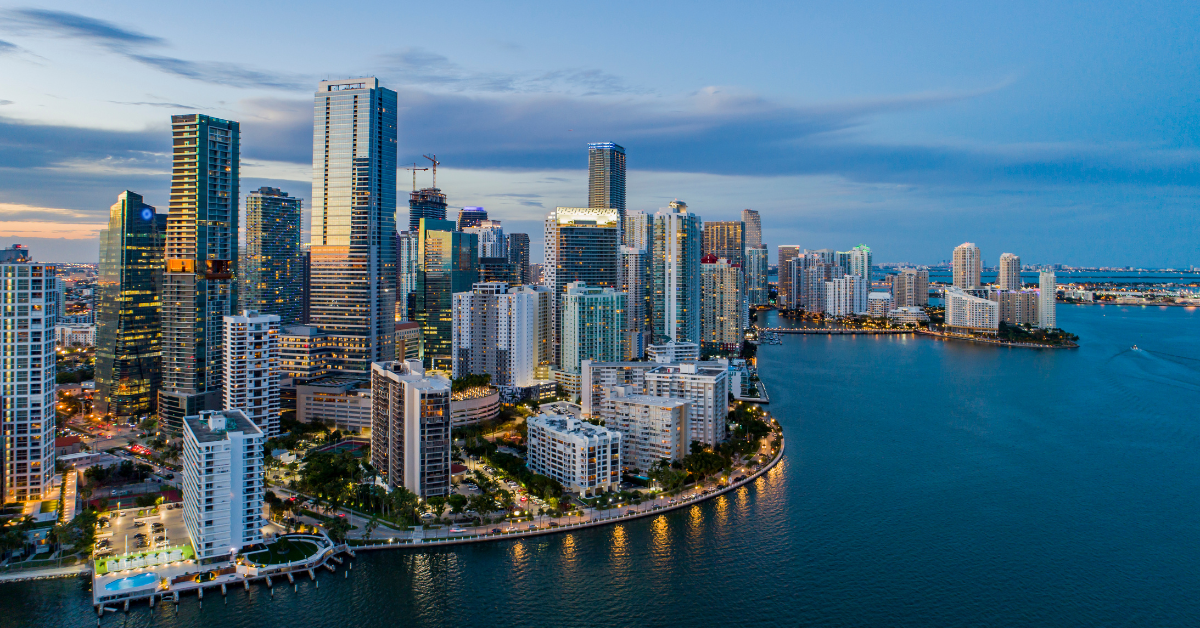Miami is known worldwide as a resort destination, yet in Japanese it is written only in katakana, with no official kanji representation. This is because the city’s name originates from Native American languages rather than Chinese characters. For Japanese people, Miami evokes images of luxury, beaches, and cultural diversity, making it more than just a place name but also a symbol.
Why Miami Has No Kanji Representation
Miami is a city in Florida, United States. Its name comes from a Native American language, and thus it has no translatable meaning in Japanese. Unlike cities such as Tokyo or Beijing, which naturally use kanji, Miami never received an “ateji” (kanji substitution) and instead became standardized in katakana.
Comparison of place name notation in Japanese:
| Type of Place Name | Writing Style | Examples |
|---|---|---|
| Originates from kanji | Written in kanji | Beijing, Shanghai, Hong Kong |
| English or Indigenous origins | Written in katakana | Miami, Los Angeles, Seattle |
| Historically given ateji | Written in ateji (kanji substitutions) | 亜米利加 (America), 倫敦 (London) |
Since Miami never developed an ateji, katakana remains the only standard form used today.
The Image Japanese People Have of Miami
When Japanese people hear the name “Miami,” they often associate it with resorts, luxury, and exotic culture.
A Resort City
Miami is globally recognized as a beach resort, famous for its white sands and blue waters. Travel magazines and TV shows frequently feature it, reinforcing the image of a tropical paradise.
Celebrities and Luxury
The glamorous neighborhoods and luxury lifestyle portrayed in films and TV dramas give Miami the image of a city where celebrities gather. Japanese media often highlight Miami as an upscale destination, strengthening this perception.
Influence of Latin Culture
Miami has a large Cuban community, and Spanish is widely spoken. Its music, dance, and cuisine are strongly influenced by Latin traditions. For Japanese people, Miami is seen as an American city with a unique sense of foreign culture.
Miami as a Sports City
Miami is not only a resort destination but also a hub for professional sports.
| Sport | Team | Characteristics |
|---|---|---|
| Basketball | Miami Heat (NBA) | Known for superstar players, very popular in Japan |
| Baseball | Miami Marlins (MLB) | Familiar to Japanese fans as they face Japanese MLB players |
| American Football | Miami Dolphins (NFL) | A historic franchise, representing Florida |
With numerous sporting events year-round, Miami attracts both tourists and sports enthusiasts alike.
Tourist Attractions in Miami
Miami is also a top tourist destination. Some spots are especially popular with Japanese travelers:
| Attraction | Characteristics | Why It Appeals to Japanese Tourists |
|---|---|---|
| South Beach | White sand beaches and Art Deco architecture | Photogenic and resort-like |
| Little Havana | Strong Cuban cultural influence | Offers a unique cultural experience |
| Vizcaya Museum and Gardens | Historic estate with European-style gardens | Appeals to lovers of art and architecture |
Miami stands out as a city where ocean and culture come together, making it attractive for diverse types of travelers.
How Miami Is Used in Japan
In Japan, “Miami” often carries symbolic meaning beyond just the city name. Advertisers and event planners use it to evoke openness, vibrancy, and exotic flair.
| Usage | Implied Image |
|---|---|
| Miami-style fashion | Bright, open, and bold designs |
| Miami night events | Latin music and resort-inspired energy |
| Miami beach-style cafés | Bright seaside atmosphere |
Thus, Miami functions as a brand-like word in Japan, evoking glamour and tropical energy.
Conclusion
Miami has no official kanji representation, and katakana is the only form used in Japanese. This is because its name derives from Native American languages, lacking any meaning that could be rendered in kanji.
For Japanese people, Miami represents resorts, celebrity lifestyles, Latin culture, and sports. Its world-famous beaches, professional sports teams, and multicultural background all contribute to its enduring appeal.
Miami remains a city full of vibrancy and diversity, blending leisure, culture, and sports, and will continue to capture the imagination of Japanese audiences.






